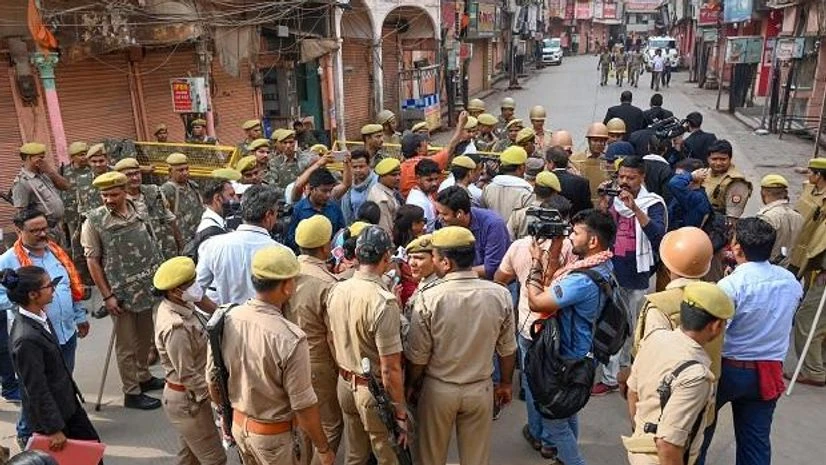The Supreme Court on Tuesday said the area within Gyanvapi mosque where the 'Shivling' has been found needs to be protected, but there should be no restriction on Muslims entering the mosque to offer namaz.
A bench of Justices D.Y. Chandrachud and P.S. Narasimha issued the notice on a plea filed by the Committee of Management Anjuman Intezamia Masajid Varanasi, against the Allahabad High Court's April order, which dismissed a petition challenging a Varanasi court's order to appoint an advocate as a Court Commissioner to inspect the Gyanvapi Masjid complex.
The top court, which is likely to take up the matter for further hearing later this week, said that the Shivling found inside the mosque during the survey needs to be protected, but the restrictions on Muslims entering the mosque to offer namaz is not correct.
It, however, did not entertain a plea for stay of proceedings before the trial court, which was scheduled to receive the Court Commissioner's survey report.
Senior advocate Huzefa Ahmadi, representing the petitioner, contended that the trial court was not correct in ordering sealing of 'wuzukhana' - a place for washing hands, feet, and face before offering prayers - where the 'Shivling' has been purportedly found.
Also Read
Citing the Places of Worship Act, he said the status quo has been changed and the wuzukhana has been used for time immemorial.
Ahmadi sought permission for use of the wuzukhana, saying it is usage is essential before namaz.
Solicitor General Tushar Mehta, representing the Uttar Pradesh government, however, said if anyone put his foot on the 'Shivling' during wuzu, it would disturb law and order, and urged the top court to seal the area.
After hearing arguments, the top court ordered sealing of the area.
(Only the headline and picture of this report may have been reworked by the Business Standard staff; the rest of the content is auto-generated from a syndicated feed.)

)
